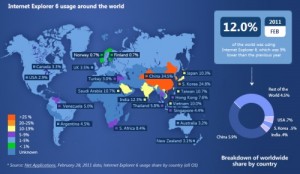Top web analytics vendors have announced major upgrades to their flagship products at Winter/Spring 2011 conferences. Webtrends and Adobe (Omniture) are no exceptions!
In Webtrends Analytics 10, the big new features I’m excited about are the possibilities of gathering and reporting data not specifically tagged, and integration with external data sources such as Facebook, Twitter and pretty much anything with an API. With regards to gathering specifically untagged data, I’m not sure how it works, or if that is only possible using http logs, but it sounds intriguing.
Next there is Adobe which recently announced SiteCatalyst version 15 which will allow analysts to segment visitors ‘on the fly’ and will finally provide visits and visitors measures on just about every report where those were previously unavailable. (Now if only Regular Expressions were supported!). Another caveat: upgrades to SC15 won’t happen automatically and will have to be scheduled with support.
(Side note: Douglas Karr at Marketing Tech Blog puts in a quick comparison of Webtrends Analytics 10 and Omniture SiteCatalyst 15.)
Couple these upgrades with ShufflePoint, a new business intelligence (BI) tool which can aggregate data from multiple sources and push it to various destinations and report formats. Right now ShufflePoint only supports pulling data from Google Analytics (but that covers a lot of web analytics users!), however many other sources will soon be added, including Webtrends, Omniture, Facebook, and Twitter.
One more thing I can’t resist: this possibly creepy tool called BeenCounter (as in where have you Been?). This tool is a branded as a behavioral targeting and tracking service. If you decide to install BeenCounter, this tool can dig in to the history bar of your visitor’s browser and dig out lists of sites your visitors have visited. Imagine what you could do with this data as a marketer… you’ll be able to tell if your customers have been surfing your competitors offerings and more. Of course, BeenCounter allows that they don’t track usage of sensitive sites. But what exactly does that mean?
Enjoy the new tools and technology!
